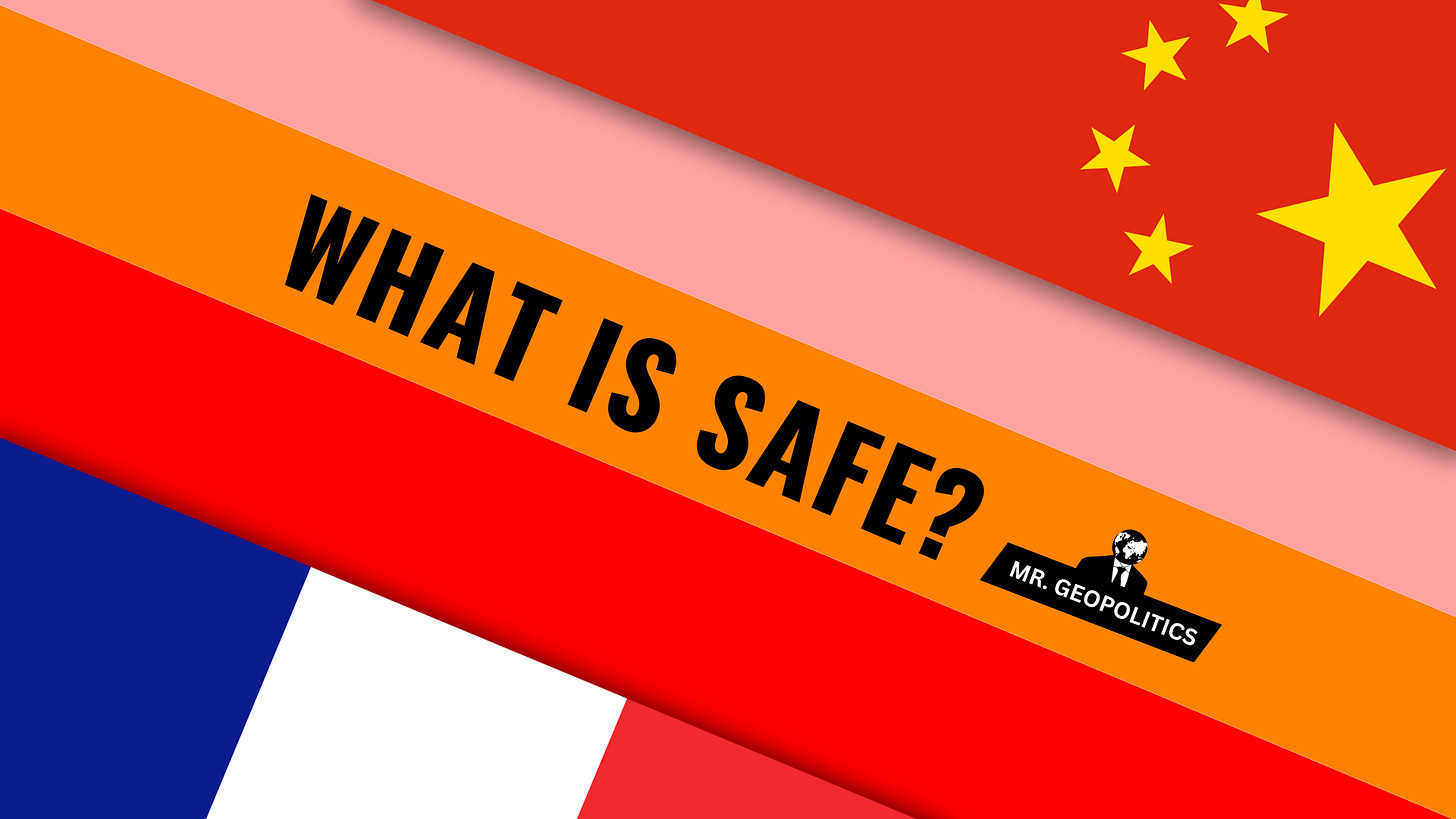Is The West Becoming Uninvestable?
When "safe" no longer means the West (or China)
As S&P downgrades the French credit rating, following a downgrade by Fitch in September, an important disruption is being overlooked by global stakeholders. Before France, Moody’s downgraded the US in May. A month earlier, in April, Fitch downgraded China. And last year, Israel’s credit rating was cut, with warnings that it could become “junk.”
The examples of China and Israel aside, two of the largest economies in the West have had their sovereign credit rating cut. It comes as political, economic, and social instability snowballs. And it leads to the question: what does the future of investment in the West look like?
WEST FOR THE WEST
This might seem trivial at first glance. After all, the West has been the center of global investment for decades, spearheaded by the US. Since Donald Trump reentered the White House in January, trillions of dollars have been committed to the US (much of which still has not materialized).
But as volatility grows and geopolitical competition heightens, investment in the West could become selective. Parts of the Global South, led by China, could draw back capital from going into the US and allied economies, beyond whatever moves have been taken so far.
In the near future, it could be the West investing in itself to remain competitive, not the whole world. The $1.5 trillion commitment by JP Morgan for the US reflects this new sentiment. This is a massive change from the past. It means geopolitics is truly establishing permanent barriers to capital.
NO CLARITY
Equally significant: how do investors gauge safety and stability?
If the West and China are being downgraded, and parts of the Global South face new economic headwinds (i.e., in August 2025, net FDI in India was down almost 160%), the global investment community has to navigate new economic and geopolitical uncertainty like never before.
This means, potentially, ignoring credit rating agencies, a structural shift.
NEW DANGERS
Surrounding all this are two questions.
First, who in the West will be next? Political divisions are rising in Germany; secession remains a possibility in Spain; Japan has been gripped by political uncertainty for several years; talk of the next Brexit continues to spread in the EU. If more Western economies have their ratings cut, Western ratings agencies will be cautioning the world from investing in Western states. Yesterday, when globalization was humming a certain way, there was a clear separation between ratings agencies and the state. But today, this separation is disappearing. Will rating agencies be in the Western crosshairs next?
Second, what about the non-Western world? At the beginning of October, the Chinese government told S&P China to “rectify operations.” What this means is vague. But it is a sign that non-Western governments are tightening their grip on ratings agencies. Once again, ratings agencies might need to put geopolitics ahead of economics, creating huge “greyness” for the global economy as to what is actually a safe bet.
INVESTMENT RICOCHET
Considering the political and economic situation in the US and France is far from over, nothing is stopping another downgrade in the future.
When Moody’s cut the US rating in May, the US-China fight had paused. Now, the US and China are on the edge of an even bigger confrontation that could drive up inflation, economic instability, and cut growth and confidence. And the social and political situation in France, in particular the “Block Everything” protests that called for withdrawing money from banks, threatening an artificial financial crisis, could restart at any moment.
Geopolitics is changing how the world functions on multiple levels. Now, the global fights could force ratings agencies to pick sides. And if they do not, nations could ignore them or create alternatives, fracturing global investment along a brand new fault line.
-ABISHUR PRAKASH AKA. MR. GEOPOLITICS
Mr. Geopolitics is the property of Abishur Prakash/The Geopolitical Business, Inc., and is protected under Canadian Copyright Law. This includes, but is not limited to: ideas, perspectives, expressions, concepts, etc. Any use of the insights, including sharing or interpretation, partly or wholly, requires explicit written permission.






